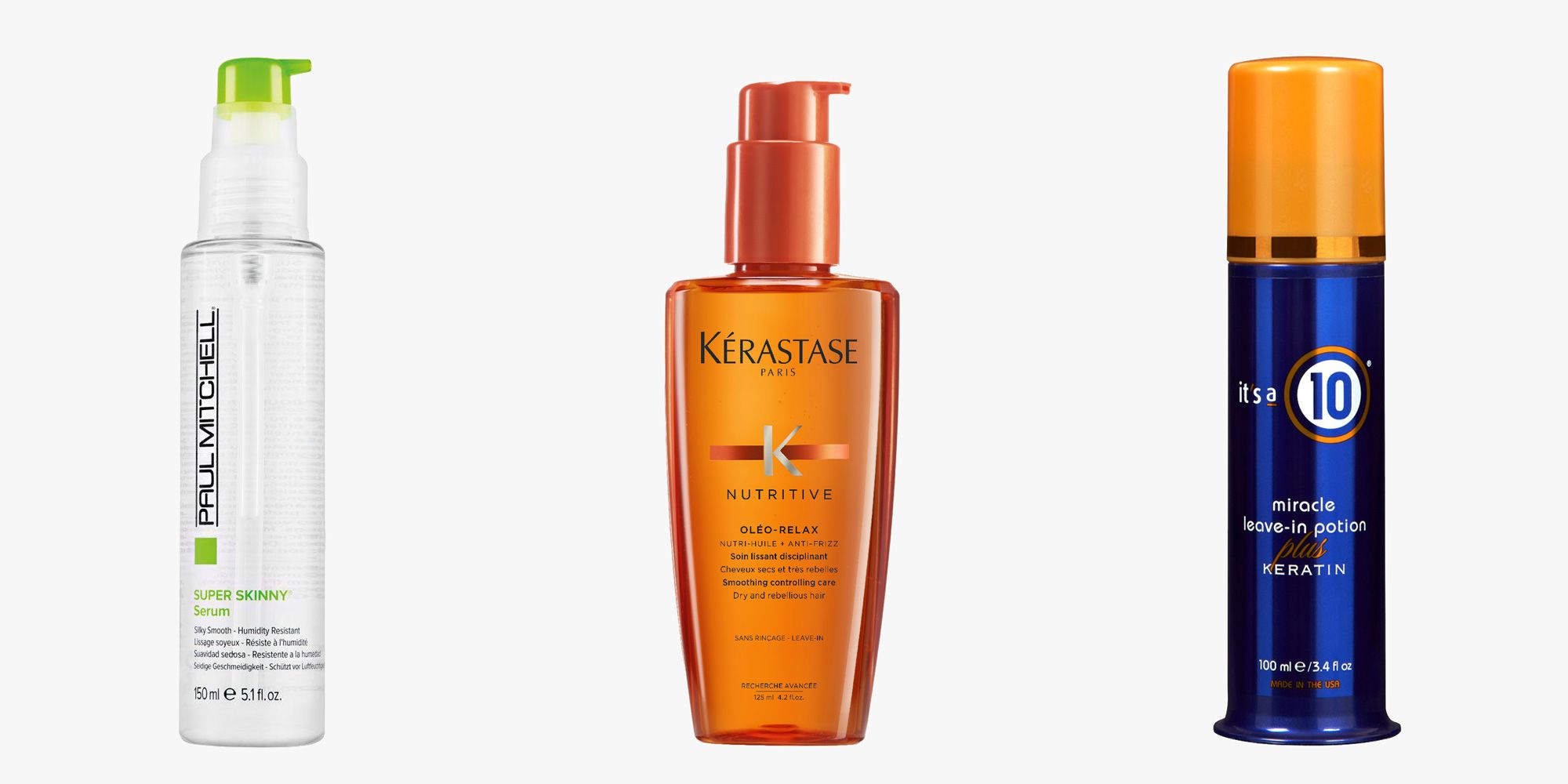
However, thicker, oilier options are intended for treating the hair once or twice a week.

Lightweight hair serums are generally meant to be used for daily styling, as they offer frizz control and a smoothing effect. For this reason, those with fine hair may want to avoid oil-based formulas, as the heavier liquid can weigh down hair. Options heavy on the oils are ideal for treating damaged, brittle, or dry hair, and they tend to work best for thicker hair. Additionally, you'll find that many are blended with oils and lightweight ingredients. Like skincare serums, some hair serums contain nothing more than plant-sourced oils, such as jojoba, coconut, argan, apricot, lemon peel, rosehip, castor, and safflower seed. This includes natural oils, vitamin E, cyclomethicone, dimethicone, alkyl benzoate, hydrolyzed silk, tea tree extract, green tea extract, and glycerin. To that end, you'll want to look for many of the same ingredients you'd find in high-quality skincare products. What to Look for When Buying a Hair Serum Skincare IngredientsĪs Murphy explains, hair serum is not unlike face serum in that it offers a concentrated dose of moisture, nourishment, or a smoothing effect without leaving a residue behind.

That said, those with natural hair should consider Pattern Beauty Jojoba Oil Hair Serum (view at Ulta), and anyone with bleached or chemically treated hair should go with Olaplex Hair Perfector No 3 Repairing Treatment. It works for all hair types, can be used on wet or dry hair, and contains ester of hydrolyzed silk to deliver ultra-smooth, shiny hair.

The best serum overall is definitely BioSilk Silk Therapy Original (view at Amazon).


 0 kommentar(er)
0 kommentar(er)
